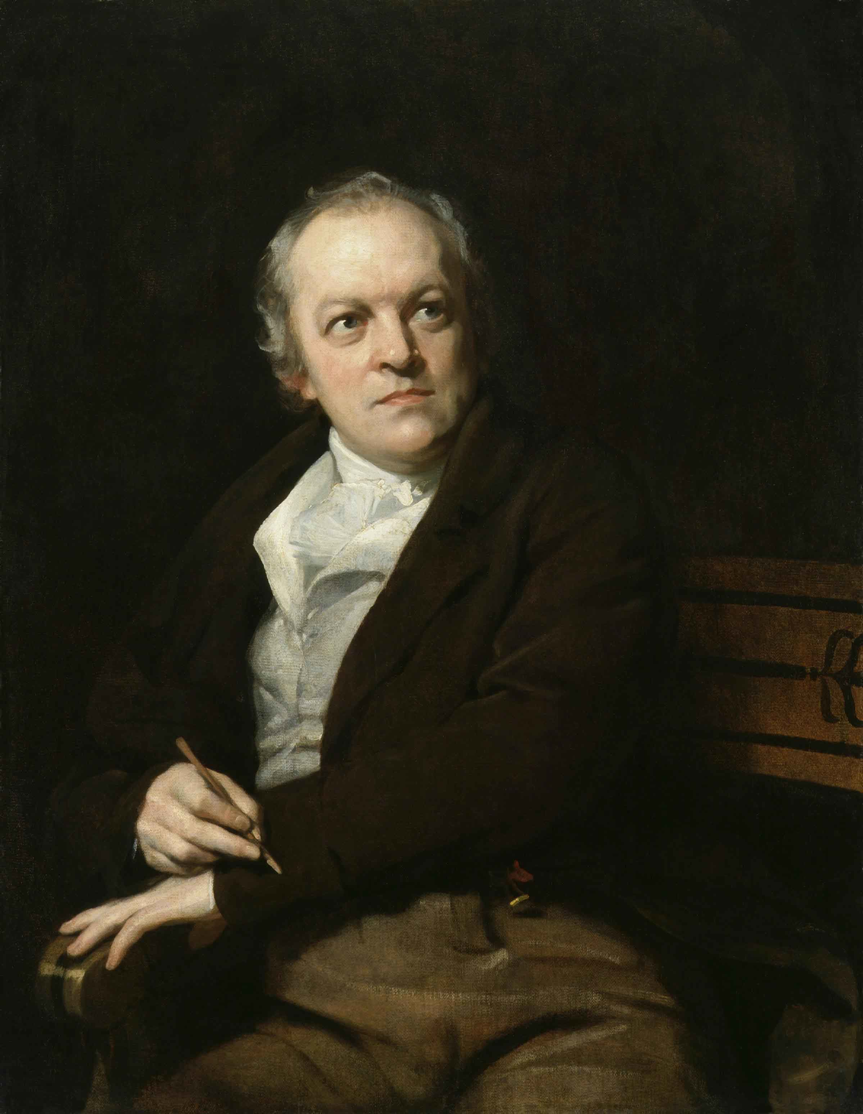William Blake słynne cytaty
Źródło: Boski wizerunek, przeł. Jerzy Pietrkiewicz
Źródło: Nie próbuj mówić o miłości
Tiger, tiger, burning bright
In the forests of the night,
What immortal hand or eye
Could frame thy fearful symmetry? (ang.)
Inna wersja:
Tygrysie, błysku w gąszczach mroku,
Jakiemuż nieziemskiemu oku
Przyśniło się, że noc rozświetli
Skupiona groza twej symetrii? (tłum. Stanisław Barańczak)
Źródło: Tygrys, przeł. Jerzy Pietrkiewicz
William Blake Cytaty o myślach
I will not cease from mental fight,
Nor shall my sword sleep in my hand,
Till we have built Jerusalem
In England’s green and pleasant land. (ang.)
Przekład Macieja Frońskiego:
W bitewnym niech nie padnę szale
I niech w mym ręku miecz nie zaśnie,
Aż zbudujemy Jeruzalem
Tu, na angielskiej ziemi właśnie.
Źródło: hymn Jerusalem ze wstępu poematu Milton: A Poem (1804), tłum. Jerzy Pietrkiewicz.
William Blake cytaty
od tego fragmentu została zaczerpnięta nazwa zespołu The Doors.
Źródło: Marek Gaszyński, Czy wiesz? Zagadki. Muzyka rozrywkowa, Warszawa 1996, wyd. Alfa, s. 20.
To see a World in a Grain of Sand
And A Heaven in a Wild Flower,
Hold Infinity in the palm of your hand
And Eternity in an Hour. (ang.)
Wróżby niewinności
„Nadmiar smutku się śmieje. Nadmiar radości płacze.”
Zaślubiny Nieba i Piekła
Every morn and every night
Some are born to sweet delight.
Some are born to sweet delight,
Some are born to endless night. (ang.)
Wróżby niewinności
William Blake: Cytaty po angielsku
“No bird soars too high if he soars with his own wings.”
Źródło: 1790s, The Marriage of Heaven and Hell (1790–1793), Proverbs of Hell, Line 15
No. 1, He Who Binds
1790s, Poems from Blake's Notebook (c. 1791-1792), Several Questions Answered
Źródło: 1800s, Auguries of Innocence (1803), Line 56. Compare Psalm 30:5 (KJV): "weeping may endure for a night, but joy cometh in the morning."
Wariant: Exuberance is Beauty.
Źródło: The Marriage of Heaven and Hell (1790–1793), Proverbs of Hell, Line 64
“For every thing that lives is Holy.”
Źródło: The Marriage of Heaven and Hell
“If the fool would persist in his folly he would become wise.”
Źródło: 1790s, The Marriage of Heaven and Hell (1790–1793), Proverbs of Hell, Line 18
Źródło: The Complete Poetry and Prose
Never Seek to Tell
1790s, Poems from Blake's Notebook (c. 1791-1792)
“Expect poison from the standing water.”
Źródło: The Marriage of Heaven and Hell
The Divine Image, st. 1
1780s, Songs of Innocence (1789–1790)
Źródło: Songs of Innocence and of Experience
“He who desires but acts not breeds pestilence.”
Źródło: 1790s, The Marriage of Heaven and Hell (1790–1793), Proverbs of Hell, Line 5
“Prisons are built with stones of law; brothels with bricks of religion.”
Źródło: 1790s, The Marriage of Heaven and Hell (1790–1793), Proverbs of Hell, Line 21
“Then cherish pity, lest you drive an angel from your door.”
Źródło: Songs of Innocence and of Experience
